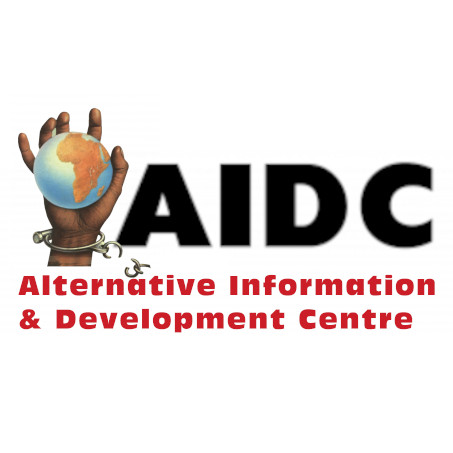AFTER THE 2021 LOCAL government elections on 1st November, the overall architecture of the neoliberal local government system will remain largely unchallenged. A major factor enabling this is the strategic and programmatic weaknesses of progressive mass working class organisations, and the absence of an effective, mass-based and dynamic Left actively organising in working class communities.
However, in that context, we must acknowledge the Left working-class political manifesto and campaign of the Cry of the Xcluded, in the midst of many other independent candidates and movements contesting these elections. The political significance of the elections lies in the following likely trends:
● The large number of working-class voters who will not turn up;
● The further decline of the ANC in black working-class areas;
● The consolidation of the DA in only a few areas where it governs or holds a significant share of the vote currently;
● Some increased support for the EFF, possibly including a major role in coalition governments in a few municipalities;
● The return of the IFP in parts of KZN;
● The possible rise and presence of explicitly xenophobic and racist political forces as elected public representatives;
and
● Possible outlier outcomes with some of the independent and social movement candidates, only in a few areas.
The post-elections moment is key. Left and working-class forces need to look beyond the elections and focus on sustainably building a longer-term, post-elections set of strategies for the transformation of local government. This can be the foundation to challenge and overcome the deep-seated municipal crisis and its neoliberal roots, whilst also building democratic popular power and alternatives which challenge the system. There is no shortcut.
Beyond narrow electoralism
Obviously, there are advantages and disadvantages to participating in elections. A narrow electoral path can lead to opportunism and the capture of even the most radical movements and councillors. On the other hand, there can be significant potential for struggles opened up by Left and class struggle-based councillors in a number of municipalities. Such councillors can be exemplary people’s councillors, committed to work hard with their constituencies to shape an oppositional and transformative politics. Such an approach requires strong movements which continue their campaigning and ensure that councillors remain accountable to their communities through regular meetings, information dissemination, transparency and truthfulness. In one isolated case of former councillor Simphiwe Zwane, who stood and got elected on a social movement ticket in Johannesburg, we saw her consistently and actively supporting popular struggles. It means movements and councillors who actively affirm and display anti-capitalist values and advance a people-centred morality in their personal and public lives. This is why the political platform advanced by the Cry of the Xcluded is important. It is essentially a combination of radical, socialist perspectives and mass politics from below, together with transformative socio-economic demands and a commitment to full accountability and transparency.
Mass struggles to make local government responsive
Even with the best will and commitment to the broad working class, any radicals occupying council seats will come up against significant systemic and structural constraints. These will limit the possibilities for the kind of radical change required. Overall, the post-1994 local government system has been systematically shaped by a number of factors:
● The history of apartheid local government,
● The limited political transition that ended apartheid,
● The neoliberal policy choices made by the post-1994 government, and in particular the conservative fiscal
framework, and
● The rise of a state-dependent parasitic class.
The fiscal framework is particularly a problem. It is based on the assumption that local government can raise its budget from the sale of services (known as “full-cost recovery”). So, less than 9% of the national budget is devoted to local government and, on average, only 30% of local government budgets comes from the national fiscus. This is a massive constraint on progressive councillors from doing anything more than being an opposition in the Council. So, what strategies must we adopt to successfully roll back the conservative fiscal constraints on municipal financing? Not to be forgotten are demands to meet basic needs in the here and now, in the context of building real local democracy. None of this can be carried out by isolated councillors without a broader mass movement actively mobilising and organising working class communities. Immediate struggles and demands correctly raise the need to end cut-offs and evictions, and to realise decent, high quality and adequate delivery of basic services. These services include water, electricity, housing that changes apartheid geography, sanitation, refuse removal, street lights, libraries, shelter at taxi ranks, etc.). Other priorities include local employment, an end to the “user pays” principle, and an end to the casualisation embedded in the Expanded Public Works Programme and Community Work Programme.
The tender system in municipalities has become the main opportunity for accumulation by local elites. Many activists are being killed either because they stand against or expose corruption in a development project. This points to the need for a major campaign to “remunicipalise” (bring service provision back to municipalities) and end outsourcing and corruption. Building from this, we suggest key elements of what can be a serious and effective organising strategy from both a renewed Left and the broader social movements:
● Strong local organisations with layers of skilled and effective activists and leaders,
● Mobilising ordinary people to be active builders of organs of democratic mass power (street by street, block by block, ward by ward),
● Actively building broader unity and solidarity between different communities and municipalities in ways that go beyond local demands and roll back isolation and alienation. For example, the proposed campaign for remunicipalisation requires a strong and principled alliance between municipal worker trade unions and social movements, and
● The capacity to organise across apartheid geography. The starting point is to support activists, movements and communities that are facing, feeling and responding to the impact of government’s anti-poor policies and the collapse of municipalities.
Transformative struggles to advance alternatives from below
Beyond struggles for reforms to meet immediate demands, our organising has to include a longer-term agenda for thorough-going systemic change. How do we engage activists, movements and communities in this project? How do we connect immediate demands with systemic transformation so that we can challenge and roll back the capitalist logic of the market in the local state? How do popular forces come to own the notions of public goods and a social wage? For example, a social wage at the municipal level may include municipal commonage for small farmers and urban agriculture, food parcels for indigent families at least partly made from local, common produce, free public transport, universal wifi at the local level, etc. And then there are immediate socio-economic needs. Already, thousands of stokvels, bulk buying groups, mutual aid activities, community soup kitchens, food gardens, and largely poorly organised cooperatives exist in villages, informal settlements and townships. The barriers and struggles they face are many, including challenges around self-management, being squeezed by bigger players in the market, limited financing options, and municipal policies and by-laws that constrain their growth and potential. We need to build effective and creative strategies, capacity and resources to organise around these challenges and barriers, whilst also harnessing them to advance a progressive economic logic.
Communities could strategically use resources from the Solidarity Fund, the SETAs, and other public finance institutions to overcome some of these challenges. But this requires effective organisation. In Argentina and a few other countries, workers and the unemployed have followed the strategy of Occupy, Resist and Produce. They take over closed factories and workplaces, resist any opposition from previous owners and the state, and then start to put them back into production. This creates self-employment based on democratic self-management. This sounds like a distant if not impossible dream. But the reality of the ongoing job losses means that we cannot ignore such a strategy. This is also where we can link recently retrenched workers, who have trade union organising skills, with social movements and communities. Progressive responses to the climate crisis have included programmes and strategies such as life beyond coal initiatives, just transition localities, climate jobs in renewable energy, climate-wise housing and public transport. Such ideas are already emerging in the struggles of communities resisting the power of mining companies. They require support, skills, capacity and resources.
Onwards from the elections
The municipal level affects each and every household. Given rising unemployment and the need to survive, organising at community level has become quite critical and vital. This means forging a renewed mass, and class struggle-based Left in all the localities where the working class resides. Already, in places like Makhanda, Bitou, Botshabelo, Cape Town, eThekwini and Johannesburg there exist radical activists and movements organising communities on many of these issues. The challenge is to find ways to connect, engage with and support this energy into sustained self-agency for reclaiming the local state from below.
The post Amandla #78 editorial | RECLAIM the local state appeared first on AIDC | Alternative Information & Development Centre.






